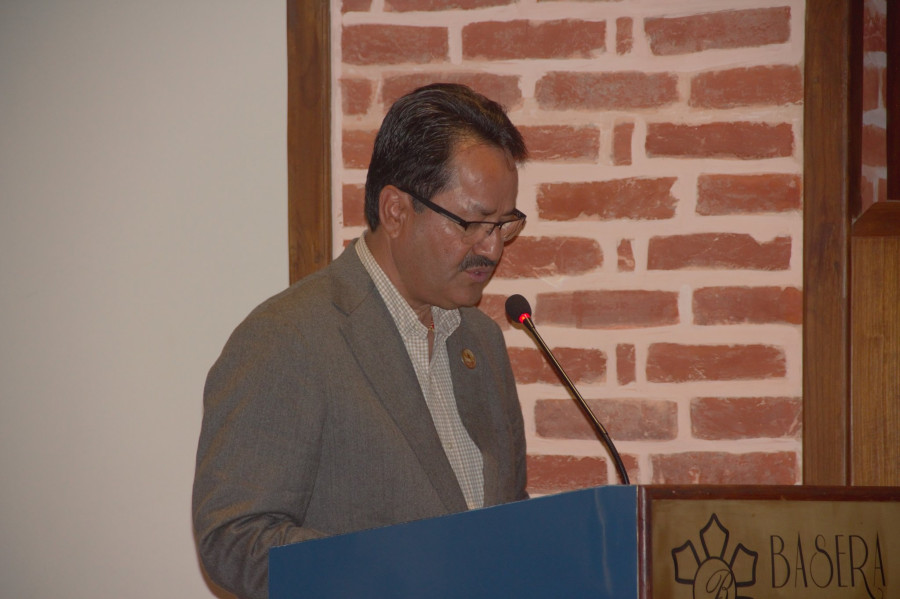Money
Experts stress strong foreign policy tools to promote Nepal’s trade
Nepal needs to advance foreign trade policy tools to leverage its trade as the country is set to graduate from a least developed country (LDC) in 2026, experts say.
Post Report
Experts on Tuesday said Nepal needs a strong foreign trade policy tool to leverage its trade as the country is set to graduate from a least developed country (LDC) in 2026.
Strong trade helps any country’s economic prosperity. Thus, Nepal needs to advance foreign trade policy tools for its national interests, they argue.
Trade and foreign policy have been intertwined throughout history, with foreign policy often tailored to promote trade interests.
Speaking at a seminar entitled ‘Contextualizing Nepal’s Foreign Policy and Infrastructure Diplomacy in Changing Context,’ organised by the Centre for Social Innovation and Foreign Policy, on Tuesday, former foreign secretary Madhu Raman Acharya said Nepal needs a strong foreign policy that guides domestic aspiration.
“We are in the process of graduating from an LDC where we can lose concessions and favourable conditions for the competitive advantage that we have been receiving. In this context, Nepal’s foreign policy should be in the national interest rather than aligning with any other country’s foreign policy.”
NP Saud, a former foreign minister, said that economic diplomacy is now the core function and the focus is on foreign direct investment, trade, development cooperation and mobilisation of other resources as well as better connectivity—regionally and globally.
“As reflected in the visit of Nepal’s prime minister to India last year, and the visit of the external affairs minister of India to Nepal this year, our relations are moving on a positive trajectory with a focus on economic deliverables of mutual benefit,” Saud said.
“We are also utilising significant resources from the Exim Bank of India to develop infrastructure such as road, transmission line and hydropower projects,” he said.
“With China, we seek to enhance economic cooperation, trade and connectivity,” Saud said.
Saud said that Nepal has a vast network of infrastructure linkages with India that comprises border roads, railways, petroleum pipelines, and transmission lines.
“We are also working to add new dimensions of connectivity like inland waterways. We are continuously working to improve these hardware infrastructures and trade and transit facilitation software at the border.”
Vijay Kant Karna, executive chairperson of the Centre for Social Innovation and Foreign Policy, said Nepal can leverage its unique geopolitical position as a bridge between South Asia and beyond to harness economic dividends from trade, investment and technology transfer.
However, the concern remains about how Nepal could adopt a pragmatic foreign policy in today’s fast-changing world, he said.
Multi-alignment or strategic alignment is a strategic choice of a large part of the economic growth, and infrastructure development, he said.
“It is necessary to establish the bottom line for our national interest, democratic values, and national security.”




 10.12°C Kathmandu
10.12°C Kathmandu













